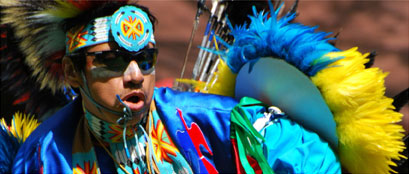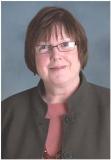|
Powwows are about much more than delicious fry bread, and since 1976 CSUN community members have gathered in the fall to observe and participate in the Native American cultural traditions that modern powwows honor. On November 26, the American Indian Studies program and the American Indian Students Association will present the 28th CSUN Powwow on the lawn by the Chicano House.
The date is deliberate, as it marks the end of Indigenous Awareness Month. Since 2001 the AIS program and AISA have observed Indigenous Awareness Month in November, during which organizers screen films, host speakers, and stage other events to educate the campus community about Native American heritage and struggles to survive eradication, both in the past and in the present. The annual powwow is the culminating event in this series.

Photo courtesy of Christianna Triolo
Powwows welcome Natives and non-Natives alike to meet, socialize, and experience the power of cultural and spiritual traditions. Many traditional dances and songs have ritual meaning and are performed with a high level of precision by featured guests, but spectators who have never attended a powwow won’t be left guessing: The master of ceremonies will clarify the meaning of events in the itinerary as they happen, inviting audience participation wherever appropriate.
The AISA, first chartered in 1974, and the AIS program, founded in 1997 with an academic minor, will announce further details about the lineup and itinerary as the date draws near. Admission is free, so come on out for some fry bread, but stay for an unforgettable cultural experience.
— Submitted by Teresa K. Morrison |


